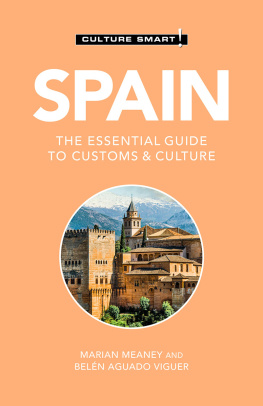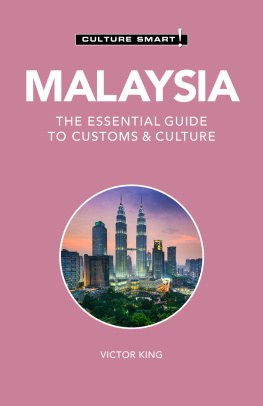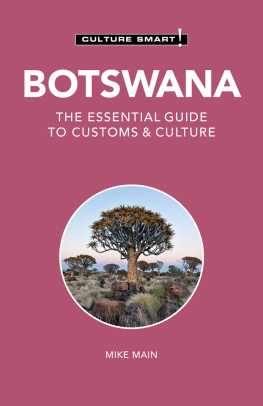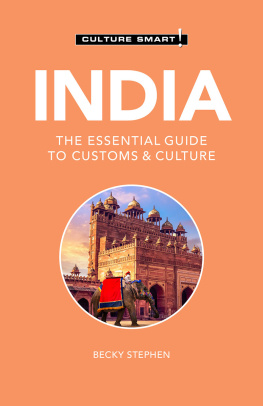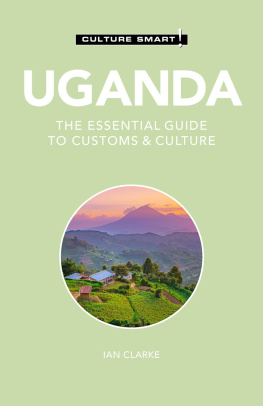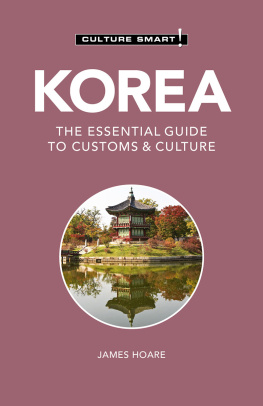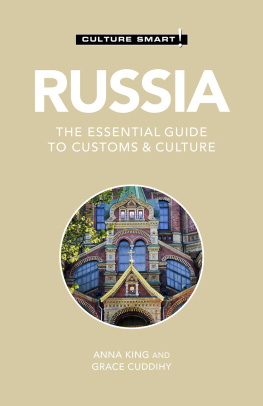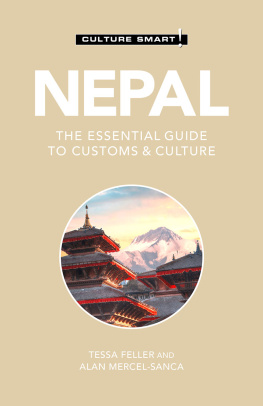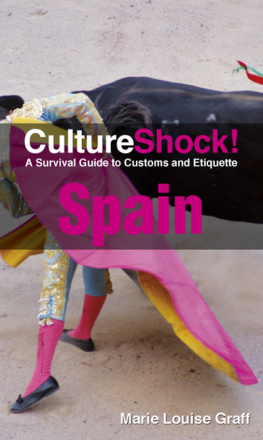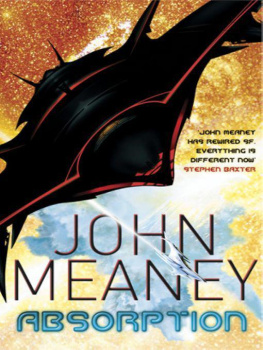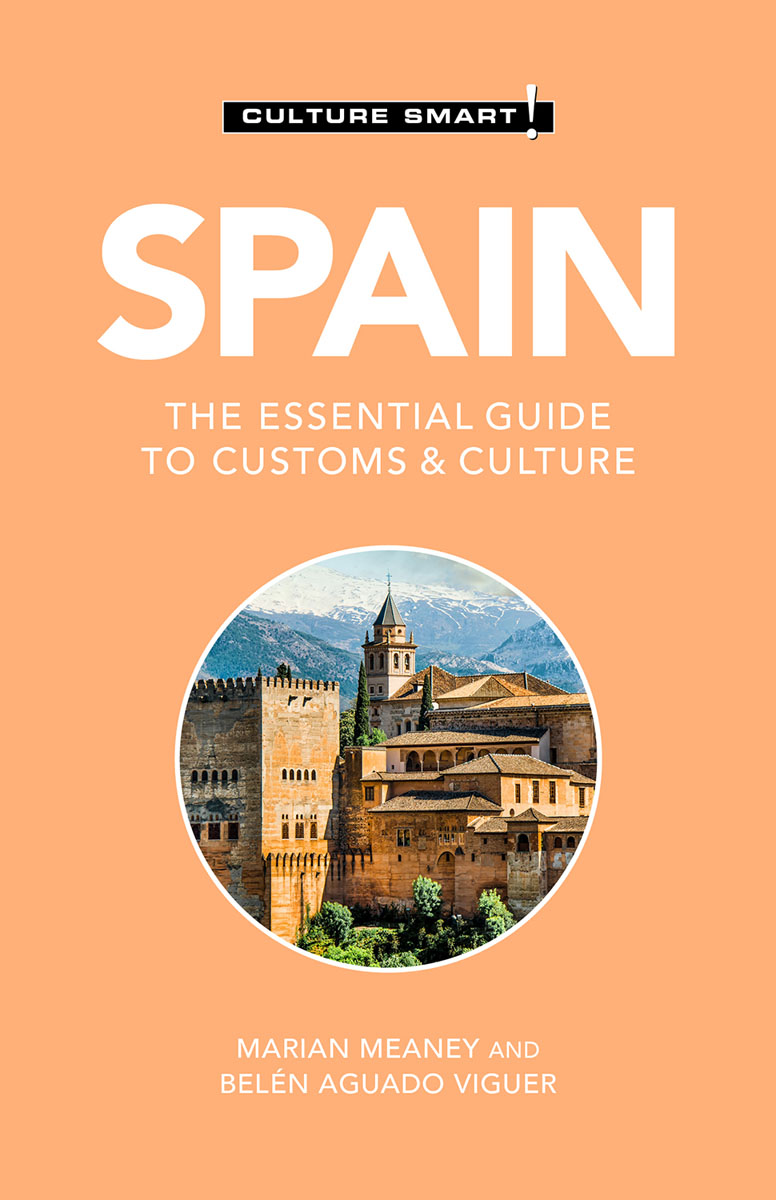
The real voyage of discovery consists not in seeking new landscapes, but in having new eyes.
Adapted from Marcel Proust, Remembrance of Things Past.
ISBN 978 1 78702 864 7
British Library Cataloguing in Publication Data
A CIP catalogue entry for this book is available from the British Library
First published in Great Britain
by Kuperard, an imprint of Bravo Ltd
59 Hutton Grove, London N12 8DS
Tel: +44 (0) 20 8446 2440
www.culturesmart.co.uk
Inquiries:
Design Bobby Birchall
Printed in Turkey
The Culture Smart! series is continuing to expand. All Culture Smart! guides are available as e-books, and many as audio books. For further information and latest titles visit www.culturesmart.co.uk
ABOUT THE AUTHORS
MARIAN MEANEY is a teacher, translator, and interpreter who has lived and worked in Spain for more than twenty years. After graduating with honors in English and Spanish from University College, Galway, she completed a higher diploma in Education, and was awarded a scholarship to study Spanish culture at the University of Salamanca. She subsequently ran English-language academies in Malaga and Barcelona, and has advised both Spanish businesses and government organizations on international exchange programs.
BELN AGUADO VIGUER is a protocol, diplomacy, and tourism expert. She graduated in Tourism at the Universidad Politcnica de Valencia, gained an M.B.A. in Protocol, Event Management, and Institutional Relations at the Universidad Camilo Jos Cela (Madrid), and has an M.A. in International Business and Diplomacy from the University of East Anglia. After working as Coordinator of International Mobility and Development and Head of Institutional Relations at the International University of Catalonia (Barcelona), she is now CEO of Fetn (fetenparty.com), a start-up digitizing the event management service.
COVID-19
The coronavirus pandemic of 2020 affected millions of people around the world, causing unprecedented social and economic disruption. As the impact of this global crisis continues to unfold, in many countries social norms are being challenged, and enduring changes will be reflected in future editions of Culture Smart! titles.
CONTENTS
MAP OF SPAIN

INTRODUCTION
In the popular imagination, Spain conjures up a picture of rapacious conquistadores, the unworldly Don Quixote, brave bullfighters, fiery flamenco dancers, and brilliant artists, from Goya and Velasquez to Picasso and Dali. All true enoughbut how does the real, everyday Spain conform to these stereotypes?
The Spaniards are certainly distinctive. Visitors to Spain might be astounded by their vitality and entranced by their friendliness. Spanish people tend to be proud, passionate, spontaneous, generous, and loyal; they can also be procrastinators, individualistic to a fault, suspicious, and loud.
Spain has had a strong impact on European and world history. For almost seven hundred years under Moorish rule, Christians, Jews, and Muslims lived in harmony in Spain. Side by side, scholars from the different communities translated Greek and Roman texts, bringing the learning of classical antiquity to medieval Europe. Ironically, however, Spain did not benefit fully from the new learning. In the wake of the Christian reconquest of 1492, Spain saw itself as the defender of the Catholic faith, and the Spanish Inquisition ended religious tolerance.
This, then, is the nation that enjoyed a golden age of enlightenment, that discovered America and gathered in its riches, and that left the great legacy of its culture and its language, which is today spoken by over four hundred million people, making it the second most-spoken language in the world. In the twentieth century, Spain suffered a bitter civil war and a stultifying dictatorship that lasted thirty-six years. However, it managed to emerge from the isolation of the Franco regime to become, once again, an integral part of Europe and the international arena.
Culture Smart! Spain explores the complex human realities of modern Spanish life. It describes how Spains history and geography have created both regional differences and shared values and attitudes. It reveals what the Spaniards tend to be like at home, and in business, and how they socialize. The chapter on customs and traditions will prepare you, the visitor, for their boundless energy and inherited religious devotion. Despite being a secular state with a declining number of believers, many national celebrations are of Catholic origin. The chapters on making friends and communicating are there to help you make the very most of your visit. The better you understand the Spanish people, the more you will be enriched by your experience of this vital, warm, and varied countrywhere the individual is important, and the enjoyment of life is paramount.
KEY FACTS
Official Name | Reino de Espaa (Kingdom of Spain) | Member of NATO, EU, OECD, and permanent guest of the G20 |
Capital City | Madrid |
Main Cities | Barcelona, Valencia, Seville, Saragossa |
Area | 195,35 sq. miles (505,955 sq. km) | 4,632 sq. miles (12,500 sq. km) insular (Canary and Balearic Islands) |
Geography | Spain covers four-fifths of the Iberian Peninsula; it is bordered by Portugal on the western side. | Spain is divided from France by the Pyrenees on the northeastern side. |
Terrain | Diversity of landscapes, including Mediterranean and Atlantic coastlines, a large central plateau, the Meseta, and several mountainous regions. Rivers mostly run eastwest. | The main mountain ranges are the Pyrenees, Cantabrian Mts., Andalusian Mts., the Sierra Nevada. The main rivers are the Tagus, Ebro, and Douro. |
Climate | Mainly Mediterranean | Inland, continental tendencies. In the north, temperate humid, or maritime |
Population | 46,700,000 (est. 2015) |
Ethnic Makeup | Four major ethnic groups, divided by language | Other ethnic minorities include gitanos (gypsies). |
Language | Castilian (over 74%), Catalan (12%), Galician (8%), Basque (just over 1%) |
Religion | Roman Catholic 99% |
Government | Constitutional monarchy at the national level. There are nineteen regions, seventeen are autonomous communities and two autonomous cities (Ceuta and Melilla, in continental Africa). | The regions have the right to self-government under the Constitution. |
Media | There are state and autonomous community television channels and private channels. | National newspapers with regional offices, include El Pais, ABC, El Mundo, La Razn, and Pblico. |
Media (English) |

